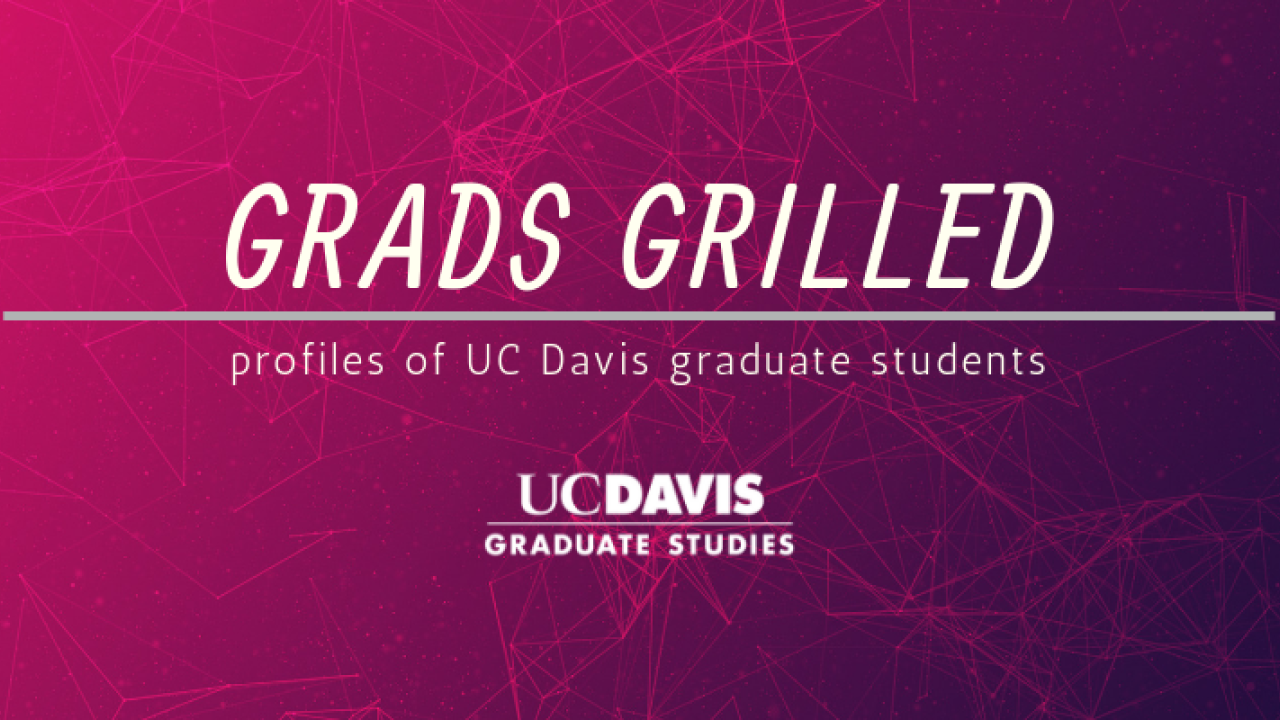
Graduate Student Profile: Michelle Cohn, Linguistics
Meet UC Davis Graduate Student Michelle Cohn
- Department
Linguistics
- Program and year of study
Ph.D.
- Previous degrees and colleges
MA Linguistics, UC Davis
BA Linguistics & Italian Studies, UC Santa Barbara
- Where did you grow up?
Manhattan Beach, CA
- Where do you live now?
Sacramento, CA
- What's your favorite spot in Davis?
SPCA Thrift Store
- How do you relax?
Hiking in Auburn with my husband, taking our inflatable kayak to nearby lakes and rivers, doing yoga, playing piano.
- What was the last book you read for pleasure?
The Circle by Dave Eggers
- What TV show are you currently binge-watching?
Chef’s Table (Netflix)
- Research interests
A combination of psycholinguistics, acoustic phonetics, and neurolinguistics
- Dissertation title or topic
My current work for my dissertation explores whether nonlinguistic experience – such as musical training – can affect speech perception in a series of psycholinguistic experiments. In particular, these studies test whether musicians (relative to nonmusicians) show improvements in their ability to successfully perceive a target talker presented with 1 or more background talkers on the basis of different acoustic cues (e.g., duration, pitch).
- Please share a surprising or noteworthy fact or finding from your research
Musicians show more precise encoding of duration and pitch cues in speech that lead to downstream improvements in speech-in-speech perception. But, interestingly, this “musician’s advantage” is limited by listener age, with no benefit observed for older musicians (relative to nonmusicians).
- Which professor or class inspired you to pursue graduate studies?
As an undergraduate, I attended the Linguistics Society of America (LSA) 2011 Summer Institute in Boulder, CO. The LSA Institute, held every other year (and at UC Davis in 2019!), is a month-long program in which graduate students (and some undergrads) come together to take classes with faculty from linguistics programs around the world. It was at LSA that I took my first course in psycholinguistics with Zenzi Griffin. But it was also the connections I made with graduate students in what we called “summer nerd camp for linguists” that set me on the course for graduate school.
- Which scholarly text do you wish you had written? Why?
While my research has focused on psycholinguistic and neurolinguistic methods in graduate school, I have always been intrigued by the complexity of language from a structural perspective. I spent a year at UCSB studying Sanskrit with Gregory Hillis and can’t help but wonder what it would have been like to describe and document its rich morphological and phonological rules, such as in Pāṇini’s Grammar of Sanskrit (from roughly 350 BCE).
- What's the best thing about being a grad student?
Working creatively on research questions and working directly with students
- What's the worst?
The few difficult undergraduates! Especially those who believe that paying tuition entitles them to an “A” in every course...
- If you weren't a grad student, what would you be doing?
Teaching and/or supporting students through a role in academic administration
- Finally, please ask yourself a question - "So, you’re studying language and music. Does that mean you have a musical “soundtrack” for your dissertation?"
Yes, though it’s constantly changing. Right now I’m soaking in anything by Dorothy Ashby, a jazz harpist.
Graduate student profile courtesy of the UC Davis College of Letters and Science.
About Graduate Studies
Graduate Studies at UC Davis includes over 100 dynamic degree programs and a diverse and interactive student body from around the world. Known for our state-of-the-art research facilities, productive laboratories and progressive spirit – UC Davis offers collaborative and interdisciplinary curricula through graduate groups and designated emphasis options, bringing students and faculty of different academic disciplines together to address real-world challenges.
UC Davis graduate students and postdoctoral scholars become leaders in their fields: researchers, teachers, politicians, mentors and entrepreneurs. They go on to guide, define and impact change within our global community.
For information on Graduate Studies’ current strategic initiatives, visit the Graduate Studies strategic plan page.
